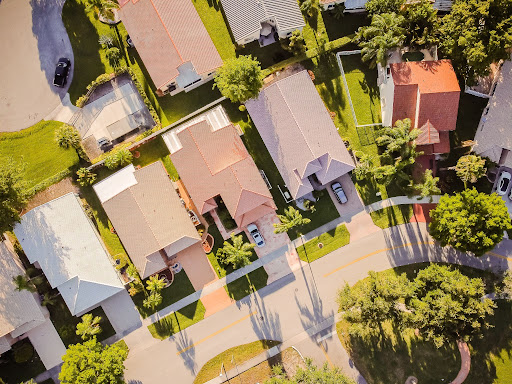Five Tips to Protect Your Residential Property Investment
- Posted on November 14, 2019
- In Lease, Residential Real Estate, Renting
Real estate can be a great investment, but it’s not without risk. Houses burn down. Floods do damage. Tenants refuse to pay. How can you protect your investment?
Perhaps you’ve decided to invest in residential real estate—a home, apartment, or duplex that you’re going to rent out instead of living in. While no one can guarantee success, here are five tips to secure your investment and prevent financial loss.
Find a Great Location
Before you buy or build on a property, ask whether it is in a good part of town. What’s the crime like in this area? You can find out by asking a cop, or you can visit your county’s website which likely has that information. For instance, if you live in Nashville, you can visit their site here.
Even if there isn’t much crime, the property still may be in a bad location. How much do the houses around it cost? Is the property in the middle of the city or is it far away. What’s nearby?
You’ll also want to make sure the property has a clean title.
Calculate Return on Investment
How much money are you going to make off your property? This is called return on investment (ROI), and it is expressed as a percentage. For example, if you spend $200,000 on a property and expect to make $12,000 in rent each year, you would divide 12,000 by 200,000 for an ROI of 6% (0.06).
Select Appropriate Tenants
This is critical for protecting your investment. You don’t want to just rent to anyone who’s willing to move in. Run a credit report on your prospective tenants. This will show you whether or not they have a history of paying their bills. You will also want to talk to their previous landlords. You’ll need the tenants’ permission to do either of these, so have them fill out a form.
You will also want to run a criminal background check. If your tenants have a poor credit score, a bad report from a previous landlord, or a criminal history, you may not want to rent to them.
Visit the Property on a Regular Basis
You should visit your rental property every couple of months to make sure your tenants haven’t done any damage. Call your tenants before visiting. You may own the property, but it’s their home, so don’t just show up unannounced. You don’t want to go three years without visiting, or you may come back to find your floorboards ripped up or your walls torn to shreds.
Buy Insurance
You’ll need three types of insurance:
- Liability coverage
- Property coverage
- Income replacement coverage
Liability is exactly what it sounds like. If someone gets injured on your property and claims you were at fault because your land was unsafe, this insurance will protect you from a lawsuit.
Property coverage protects you if the apartment/duplex/home is destroyed. The insurance company will give you money to replace it. You want to make sure the policy uses the term “replacement cost.” If it does not, the policy may pay you less than it would take to repair your property. For example, if your 10 year old apartment building burns down, they may only pay you half of its value, since you already got 10 years worth of use out of it, and the building was already part of the way through its lifespan. A replacement cost policy will pay you enough to replace the building that was destroyed (or at least close to enough).
Income replacement coverage will compensate you for lost rent while your building gets repaired. For example, if you own a duplex that gets damaged by a tornado, you will need to get it repaired, and since your tenants won’t be able to live inside the structure while it’s being repaired, they won’t pay you rent during that time. Instead, income replacement coverage will pay you part of what you would have made. The insurance company compensates you if your building becomes uninhabitable, but the insurance company won’t compensate you if you simply can’t find tenants.
These five tips will help protect you from losing money on your residential real estate investment, but maybe you’re still concerned. Buying an apartment building requires a lot of money, and you want to make sure you’re doing everything right.
Our attorneys have decades of experience with real estate law. Even if you’re unsure whether or not you need an attorney, you can call us and we’ll help you make that decision during a free, no-risk consultation.
Subscribe for Updates
Latest Posts
- Title Issues in Tennessee: Common Problems and How They’re Cleared
- Common Commercial Lease Red Flags (and How to Negotiate Them)
- Commercial Purchase and Sale Agreements – How a Real Estate Attorney Can Protect Your Transaction
- When Do You Need a Nashville Probate Lawyer? 8 Common Scenarios
- Commercial Leases – Important Considerations





